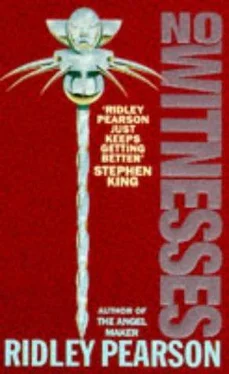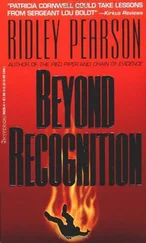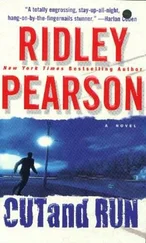Ridley Pearson - No Witnesses
Здесь есть возможность читать онлайн «Ridley Pearson - No Witnesses» весь текст электронной книги совершенно бесплатно (целиком полную версию без сокращений). В некоторых случаях можно слушать аудио, скачать через торрент в формате fb2 и присутствует краткое содержание. Жанр: Триллер, на английском языке. Описание произведения, (предисловие) а так же отзывы посетителей доступны на портале библиотеки ЛибКат.
- Название:No Witnesses
- Автор:
- Жанр:
- Год:неизвестен
- ISBN:нет данных
- Рейтинг книги:4 / 5. Голосов: 1
-
Избранное:Добавить в избранное
- Отзывы:
-
Ваша оценка:
- 80
- 1
- 2
- 3
- 4
- 5
No Witnesses: краткое содержание, описание и аннотация
Предлагаем к чтению аннотацию, описание, краткое содержание или предисловие (зависит от того, что написал сам автор книги «No Witnesses»). Если вы не нашли необходимую информацию о книге — напишите в комментариях, мы постараемся отыскать её.
No Witnesses — читать онлайн бесплатно полную книгу (весь текст) целиком
Ниже представлен текст книги, разбитый по страницам. Система сохранения места последней прочитанной страницы, позволяет с удобством читать онлайн бесплатно книгу «No Witnesses», без необходимости каждый раз заново искать на чём Вы остановились. Поставьте закладку, и сможете в любой момент перейти на страницу, на которой закончили чтение.
Интервал:
Закладка:
Boldt spent the early evening at NetLinQ monitoring the effectiveness of the new software, and congratulating the crew for their efforts. The ransom account had never been hit before eight o’clock in the evening, leading Boldt and others to suspect Caulfield might be holding down a day job-although Ted Perch pointed out that late evening made sense for such hits. Many banks restocked their cash machines at the close of business; if an extortionist wished to avoid being seen by bank employees, then at the very least he or she would wait until after the close of business-as late as 6 P.M. at some branches.
The NetLinQ operations room was an impressive collection of high technology and reminded Boldt of what he had seen of telephone command centers. It was nearly pitch-black, the focus of the room being three enormous flat-screen color monitors that visually mapped all ATM traffic in the NetLinQ region. The floor descended toward these screens in three tiers, each housing rows of computers, some of which were attended. The far right-hand screen showed all those ATM locations under time-trap control. After pestering from Boldt, Perch reluctantly added another six-second WOT, this time between account authorization and delivery of cash.
NetLinQ’s public information office had earlier distributed a press release, announcing that due to system maintenance some “inconveniences” were to be expected. The eleven o’clock news had promised to run it.
For the sixth consecutive night, an ATM hit occurred shortly after 8 P.M. “It’s getting like clockwork,” Perch said, pointing out the flashing dot on the overhead screen. Clockwork was what Boldt hoped for-the more predictable and repetitious the withdrawals were, the increased chance of apprehending a suspect.
Perch announced, “Five seconds and counting.”
Boldt relayed news of the hit directly to SPD dispatch. “Location is N-sixteen. Repeat: En-one-six.”
“Ten seconds,” Perch tracked. He checked a computer screen. “This one is not under time-trap control,” he warned.
Boldt could imagine one of his plainclothes detectives throwing a car in gear and speeding toward the location. But with less than five seconds to close the gap, he did not see much hope.
He needed more people. He needed more of the machines time-trapped.
“Transaction complete,” Perch announced, dejected.
“Lieutenant?” Boldt barked hopefully into the telephone receiver.
Shoswitz said, “Surveillance is four blocks and closing.”
Boldt felt tempted to cross his fingers. He envisioned the unmarked car running traffic lights and braking loudly to a stop. To Perch, Boldt said, “We need better communication with the field.”
“Tell me about it,” Perch replied, frustrated and upset.
Shoswitz said through the phone, “Nothing. Repeat: No visual contact.”
Boldt relayed this to Perch, who cursed so loudly that he raised the attention of several of the NetLinQ employees.
An hour later there was a second hit, though this time on a machine not under software control. Surveillance failed to close within twelve blocks.
“We need more of the machines on the software,” Boldt complained.
“Don’t tell me my business, Sergeant. We can’t make any more headway until morning. We have two lags in usage: nine-thirty to eleven A.M. and two to five P.M. That’s as soon as we can hope to put more machines on-line.”
“We need them tonight!”
“The system will crash. And if it crashes while this person is online, then it could look intentional. Is that what you want?” he asked heatedly.
Reluctantly, Boldt sat back and watched a third and final hit take place. And for a third and final time that night, surveillance was nowhere close.
At a few minutes before midnight, he was summoned to the hotel room where Dr. Richard Clements was staying.
Boldt arrived depressed and exhausted.
Shoswitz and Daphne reached the Alexis before Boldt, and all were awaiting him when he arrived.
The suite was spacious, with paper Japanese sliding doors separating the bedroom from a sitting room that included a large glass conference table, two couches, a coffee table, several freestanding lamps, a fireplace, and a wet bar. The decor was granite, glass, and steel-ultra-modern-which was not to Boldt’s tastes, and yet here he found it to his liking.
CNN was muted on the television in the corner-Michael Kinsley with his coat off, interviewing an author-and Clements kept the remote within reach.
Clements was dressed casually in linen pants and an Italian-designed white Egyptian cotton shirt, with black loafers and no socks. He was drinking what looked like brandy out of a snifter the size of a fishbowl, and he carried a wad of chew neatly in his upper lip, leaving a bulge there as though he were trying to stop a nosebleed. He wore half-glasses, tortoiseshell imitation that rode on the bridge of his nose precariously. He sat at the glass conference table in a black leather-and-stainless steel captain’s chair, waving a two-hundred-dollar mechanical pencil in the air and punctuating his authoritative instructions.
“You sit there. And you there. No-there, please,” he advised Shoswitz. “Yes, thank you. The Armagnac is excellent, and seemingly endless, and comes highly recommended. Whatever your pleasure.” He looked them over.
Daphne and Boldt declined. Shoswitz requested a Miller Lite, an order that so disgusted Clements he referred him to the wet bar’s refrigerator, advising him to “use whatever’s there.”
Dr. Richard Clements began with a self-possessed arrogance that immediately offended all present: “Before we get into Twenty Questions, let me head off whatever possible by offering you my updated profile.” He rolled the liqueur around in his mouth, and Boldt had to wonder what a mixture of Armagnac and chew tasted like when spilled across one’s tongue. “It’s interesting: Behavior will always tell you more than a rap sheet. I am referring, of course, to the incident in Mr. Adler’s woods and the telephone call that immediately preceded it.
“It’s late, so I’ll try not to bore you. You are all aware of the stalking phase that a serial killer or rapist enters into prior to the attack. Any of a number of specific incidents may precede the stalking phase, including arson, the killing of house pets, voyeurism, and masturbation, but the stalking phase is unique in that it directly precedes the offense. We see it in the wild-a cat, even some packs, will stalk prior to the kill, even if the intended prey is wounded or incapacitated. Still, the stalk. What our Mr. Caulfield is doing is getting up close and personal with his intended prey, Mr. Adler. The fact that he has entered this phase is warning sign enough: It is drawing to a close. We are in the last act. The stalking phase can go on for days, weeks, even months or years, and we are still at odds to know exactly what precipitates the craving for completion of the act. Boredom? Rage? Sexuality? So different in every case.” He swilled more of the snifter’s contents and inhaled, apparently enormously satisfied with the results. His audience was too stunned to interrupt.
“And so we know that he has begun this final coda before the finale.” He waved the pencil in time to music within his head, and Boldt could see his lips close as he hummed silently along with it. “But unfortunately, we do not know the length of the piece. Point number one ,” he said strongly, “Adler-or someone in that house,” he conditioned, “-is the target of his intentions.”
He excused himself to the bathroom, and apparently leaving an interior door open, urinated loudly enough that all could hear.
Shoswitz said in a forced whisper, “Is the air-conditioning on, or is it just him?”
Читать дальшеИнтервал:
Закладка:
Похожие книги на «No Witnesses»
Представляем Вашему вниманию похожие книги на «No Witnesses» списком для выбора. Мы отобрали схожую по названию и смыслу литературу в надежде предоставить читателям больше вариантов отыскать новые, интересные, ещё непрочитанные произведения.
Обсуждение, отзывы о книге «No Witnesses» и просто собственные мнения читателей. Оставьте ваши комментарии, напишите, что Вы думаете о произведении, его смысле или главных героях. Укажите что конкретно понравилось, а что нет, и почему Вы так считаете.












